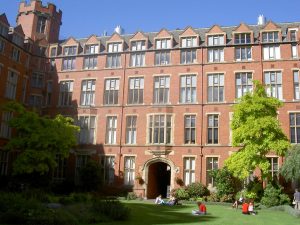PhD project in regenerative biology.
Posted by Henry Roehl, on 7 November 2021
Job type: PhD
Location: Sheffield
Closing Date: 7 January 2022
How do epithelial cells close wounds and initiate regeneration?
The study of regenerative biology aims to elucidate the innate ability of organisms to repair tissues or organs after they have been removed or damaged. During vertebrate regeneration, tissue damage causes the immediate release of signals that initiate wound closure and initiate regeneration. This project uses larval zebrafish to study how cells respond to when the epithelia is damaged. Zebrafish repair wounds quickly and efficiently, and their small size and transparency allow us to follow cell behaviour easily. Our previous research found that there are very surprising movements of cells over the first few hours after damage, and this current project aims to understand the forces involved in these movements and the signals that orchestrate the wound response. We plan to image fluorescently labelled cells over time to give positional data across the fish using a lightsheet microscope. Data sets will be analysed using physical and computational modelling to calculate passive and active forces such as compression, stretching, shear and friction. Once a physical model of whole animal cell movement is established we will interrogate our predictions by manipulating known early wound signals.
The BBSRC WR DTP and the University of Sheffield are committed to recruiting future scientists regardless of age, ethnicity, gender, gender identity, disability, sexual orientation or career pathway to date. We understand that commitment and excellence can be shown in many ways and we have built our recruitment process to reflect this. We welcome applicants from all backgrounds, particularly those underrepresented in science, who have curiosity, creativity and a drive to learn new skills.
Click for more info on this scheme

Entry Requirements: Students with, or expecting to gain, at least an upper second class honours degree, or equivalent, are invited to apply. The interdisciplinary nature of this programme means that we welcome applications from students with backgrounds in any biological, chemical, and/or physical science, or students with mathematical backgrounds who are interested in using their skills in addressing biological questions.
The closing date for applications is 5pm Friday 7th January 2022.
Click to apply
Programme: PhD in Mechanistic Biology (4 years)
Start Date: 1st October 2022
Shortlisted candidates will be interviewed in mid February 2022
Funding Notes
This project is part of the BBSRC White Rose Doctoral Training Partnership in Mechanistic Biology. Appointed candidates will be fully-funded for 4 years.
Tax-free annual UKRI stipend (£15,609 for 2021/22 starts)
UK tuition fees (£4,650 for 2021/22)
Research support and training charges (RSTC)
We aim to support the most outstanding applicants from outside the UK and are able to offer a limited number of bursaries that will enable full studentships to be awarded to international applicants. These full studentships will only be awarded to exceptional quality candidates, due to the competitive nature of this scheme
References
Romero et al. Nature Comms 9:4010(2018); Roehl. Int. J. Dev. Biol. 62:473(2018)

Salary: N/A
Start date: 1 October 2022
Closing Date: 7 January 2022
Scientific fields: Regeneration, Quantitative biology and modelling, Development and disease
Model systems: Zebrafish
Duration: Fixed term
Minimum qualifications: BSc

